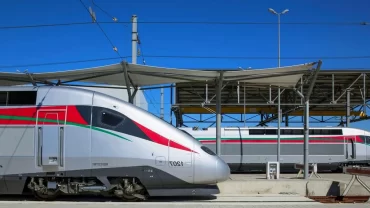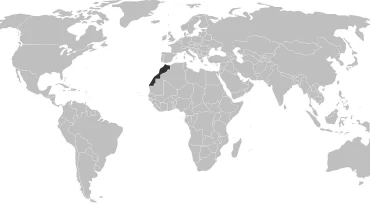The Imilchil Marriage Festival will be held this year (2026) between September 18th to 21st. This festival takes place in the village of Imilchil, located high in the Atlas Mountains of Morocco. It’s a special event that brings together locals and visitors to enjoy and celebrate Berber culture and traditions.
A Story of Love and Tradition
The Imilchil Marriage Festival is linked to a local Berber legend. According to the story, a young man from the Ait Hdiddou tribe loved a woman from the Ait Zmane tribe. Their love faced obstacles because of family and tribal disagreements. To honor their story, a festival was created where young men and women from different tribes could meet and find partners. What started as a sad tale has become a joyful celebration of love and union.
What to Expect at the Festival
The Imilchil Marriage Festival is much more than a matchmaking event. It’s a grand celebration of Berber culture, with colorful clothes, music, and dance.
Traditional Clothing and Ceremonies:
During the festival, participants wear traditional Berber clothes. Women dress in beautiful, hand-woven garments decorated with silver jewelry, while men wear traditional outfits and headwear. The attire is vibrant and reflects the rich culture of the region.
Music and Dance:
Music and dance are key parts of the festival. Local musicians play traditional Berber songs using instruments like the guembri (a type of lute) and the bendir (a hand drum). The music creates a lively atmosphere, and people often join in dance circles to celebrate together.
Cultural Exchange:
The festival is also a chance for cultural exchange. Visitors from around the world come to see and experience Berber traditions. This helps to promote understanding and appreciation of Moroccan culture.
Modern Challenges and Opportunities
In recent years, the Imilchil Marriage Festival has become well-known internationally, attracting tourists from many countries. While the festival’s main focus is still on celebrating love and facilitating marriages, it has also become a tourist attraction. This has brought both benefits and challenges.
The increase in visitors has helped the local economy and supported the preservation of Berber traditions. However, there are concerns about the impact of tourism on the local culture. To address these issues, efforts are being made to ensure that the festival remains authentic and respectful of local customs.
Travel to Imilchil
Joining a Morocco tour during the Imilchil Festival is a unique and unforgettable experience that immerses you in the rich cultural traditions of the Atlas Mountains. Held annually in the small Berber village of Imilchil, this vibrant festival—often referred to as the “Festival of Love”—celebrates ancient tribal customs, music, dance, and the legendary collective marriage ceremonies of the Aït Haddidou tribes.
As part of the tour, you’ll witness colorful souks filled with local crafts, enjoy traditional music performances, and see young couples engage in symbolic wedding rituals passed down through generations. Surrounded by dramatic mountain landscapes, you’ll also have the chance to explore authentic Amazigh culture, taste local dishes, and interact with nomadic communities.
This tour is perfect for travelers seeking a deeper connection with Morocco’s heritage beyond the typical tourist paths. It’s not just a journey through breathtaking scenery—it’s a rare cultural celebration that brings communities together, offering travelers a glimpse into Morocco’s soulful mountain traditions.



Comment (0)